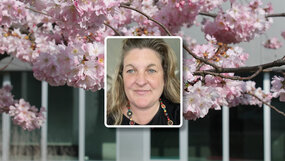Re-thinking language, territory and nativeness: implications for language policy, language planning and language advocacy
par Bernadette O’Rourke, Université de Glasgow
Abstract
Globalisation is often seen as a factor in the decline of diversity in contemporary societies and frequently used to explain language loss around the world. However, this can be an oversimplification as there are many examples of resistance to globalising trends, leading to new types of speakers, new ways of speaking and new uses for emerging linguistic resources in new spaces (e.g. urban spaces, virtual spaces). This requires a re-thinking of some of the older assumptions around language, territory and nativeness which have dominated the field of linguistics and related strands. This includes (1) the notion of language as a bounded, discrete and named entity; (2) territorialised notions of language within bounded communities of place; (3) the native speaker ideology. In this talk I will reflect on some of these older assumptions and look at alternatives proposed in critical sociolinguistics such as (trans)languaging, de-territorialised understanding of language and the new speaker concept. While advocating for the merits of these new conceptualisations in the context of a contemporary globalised world, I would also like to explore some of the challenges they can present. I will focus in particular on the field of minority language sociolinguistics where research often requires close engagement with policy makers. Minority language sociolinguists also play a dual role as researchers and advocates for the minority language and work closely with language activists and community members to bring about positive change. To illustrate these points, I will draw on my own experience as a researcher and advocate for minority languages with a particular focus on my engagement with new speakers of minority languages, including Irish, Gaelic and Galician.
